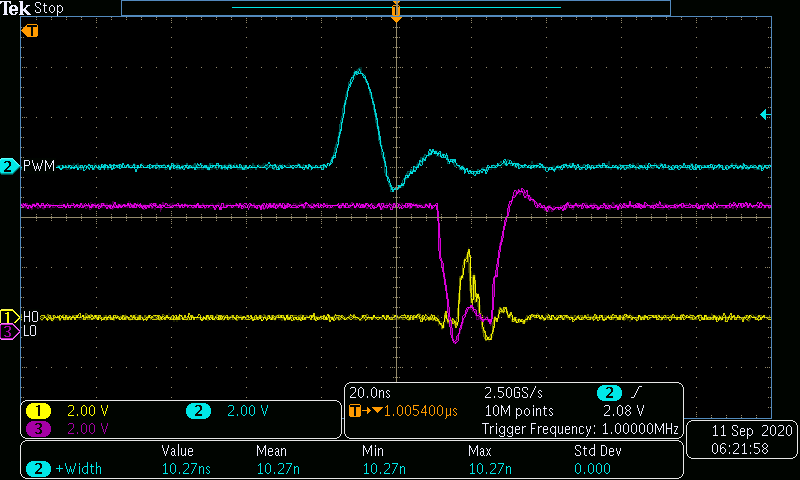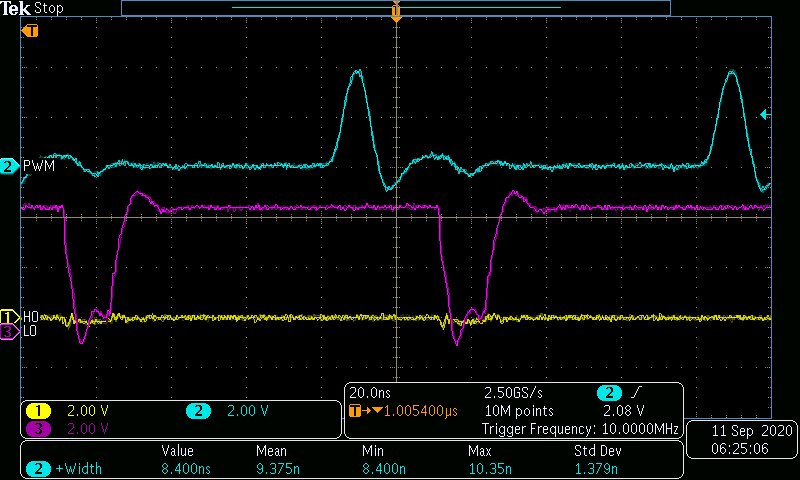Other Parts Discussed in Thread: LMG1205, LMG1210, UCC27200, LMG1210EVM
Some time back, there was a brief thread regarding a destructive glitch from the LM5113. Under very short pulse widths, the LM5113 would glitch and destroy the output transistors.
I am presently working on a Class-D audio amplifier design with GaN output devices and I have experienced this problem. Can you tell me if any of your newer parts (LMG1205/LMG1210?) have this same problem? The reason for asking is that all audio amplifiers will eventually clip, which would result in a pwm pulse width approaching zero, so I'm wondering if I need to include anti-clipping circuitry in my signal path.
Thanks for any suggestions you can offer.




